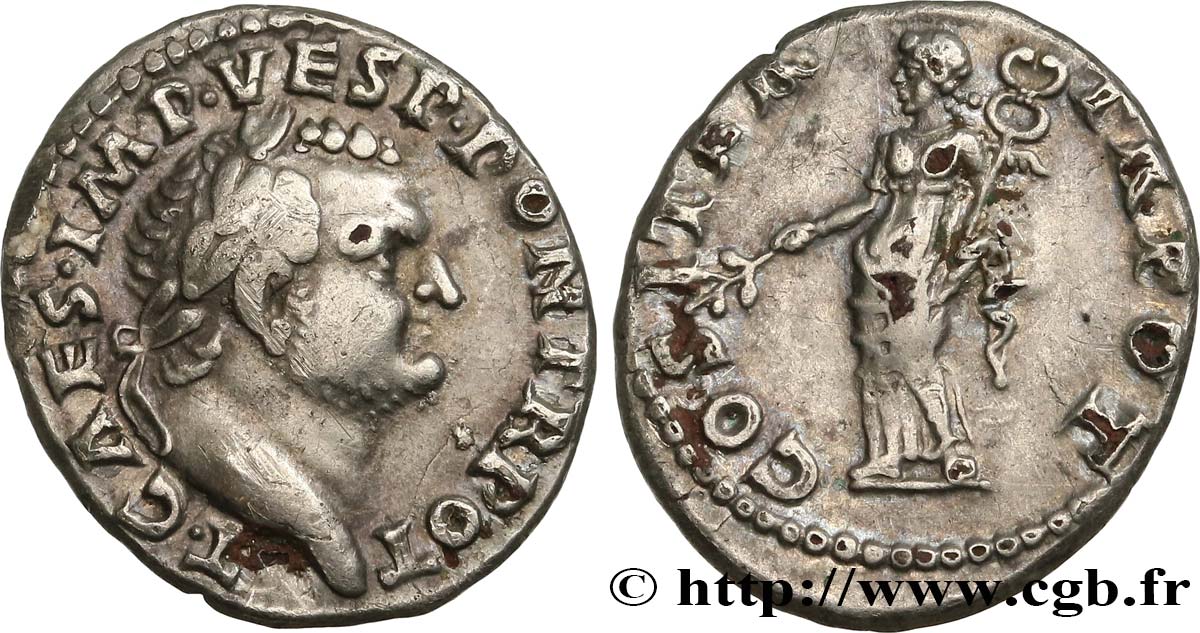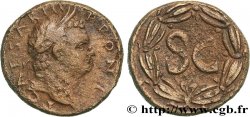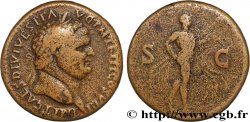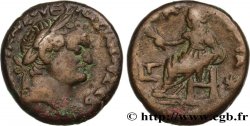brm_431520 - TITUS Denier fourré hybride
Not available.
Item sold on our e-shop (2017)
Price : 225.00 €
Item sold on our e-shop (2017)
Price : 225.00 €
Type : Denier fourré hybride
Date: c. 70-72
Mint name / Town : Atelier incertain
Metal : silver
Diameter : 18,5 mm
Orientation dies : 6 h.
Weight : 2,81 g.
Rarity : UNIQUE
Coments on the condition:
Exemplaire sur un flan ovale bien centré des deux côtés avec un métal laissant apparaître le cuivre en surface. Belle tête de Titus. Revers de style fin
Predigree :
Cet exemplaire provient de MONNAIES 43, n° 501
Obverse
Obverse legend : T. CAES. IMP. VESP. PONT TR POT.
Obverse description : Tête laurée de Titus à droite (O*).
Obverse translation : “Titus Cæsar Imperator Vespasianus Pontifex Tribunicia Potestas”, (Titus césar empereur Vespasien pontife, revêtu de la puissance tribunitienne).
Reverse
Reverse legend : COS. ITER - PON TR. POT.
Reverse description : Pax (la Paix) drapée debout à gauche, tenant de la main droite, une branche d’olivier et de la main gauche, un caducée ailé.
Reverse translation : “Consul iterum Pontifex Tribunicia Potestas”, (Consul pour la deuxième fois pontife revêtu de la puissance tribunitienne).
Commentary
Un seul ruban évidé visible. Légende partiellement ponctuée des deux côtés. Denier hybride et fourré associant un droit normalement utilisé en 72 pour Titus et un revers daté de 70 pour Vespasien. Exemplaire de très bon style qui ne semble pas une imitation, mais peut-être un faux d’époque. Denier “impossible” par excellence. Semble complètement inédit et non répertorié. Manque à tous les ouvrages consultés. De la plus grande rareté. Exemplaire de qualité exceptionnelle pour un exemplaire fourré hybride.








 Report a mistake
Report a mistake Print the page
Print the page Share my selection
Share my selection Ask a question
Ask a question Consign / sell
Consign / sell
 Full data
Full data



